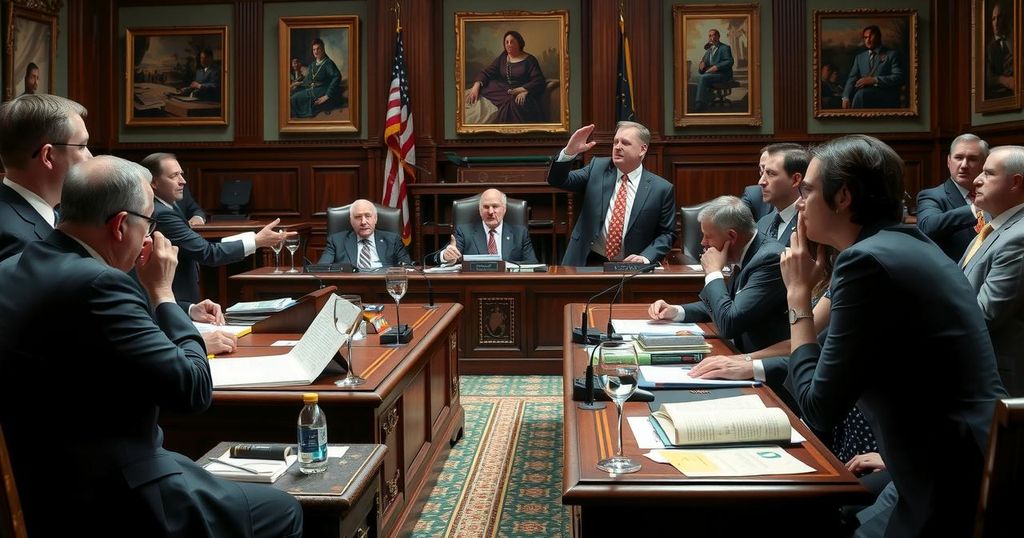157 Election Deniers Persist in Congress Four Years After January 6 Insurrection

The article examines the presence of 157 election deniers in Congress four years post-January 6 insurrection, reflecting a normalization of election denial within the Republican Party. It contrasts the U.S. approach to accountability with more decisive actions taken by other countries, illustrating a significant reluctance to address political misconduct in the U.S.
Four years following the insurrection at the Capitol, 157 members of the newly convened 119th Congress continue to reject the legitimacy of the 2020 presidential election. This number includes 137 House members and 20 senators, demonstrating a notable persistence of election denial in American politics. This phenomenon reflects a diminishing stigma attached to the label of ‘election denier’ among Republicans, with not only Congress members but also multiple governors and state officials embracing the narrative of election fraud. As evidenced by a project from States United Action, these figures highlight how a substantial portion of Republican leadership has sustained a narrative undermining electoral integrity.
In contrast, other nations, such as Brazil and South Korea, have seen swifter accountability measures against officials implicated in attempts to subvert democracy. The latter countries exhibited prompt corrective actions following insurrections, with significant political repercussions for their leaders. In the United States, however, accountability efforts have been impeded by a cautious approach from the Justice Department, which focused on individual rioters rather than the political figures who instigated the violence. This methodology has led to a political climate characterized by inaction, allowing election deniers to maintain their positions and ideologies without substantial pushback.
While more than 900 individuals have faced legal consequences for their actions during the January 6 riot, the lack of consequences for prominent political figures, including former President Trump remains glaring. The political landscape appears to have normalized the acceptance of election denial, allowing these ideologies to become entrenched in the broader political discourse of the nation. As a result, the number of election deniers in Congress reflects an unsettling acceptance of this narrative within the fabric of American politics.
The article discusses the enduring presence of election deniers within the U.S. Congress, four years after the Capitol insurrection on January 6, 2021. It highlights that despite the violent attempt to overturn the election results favoring Joe Biden, 157 current members of Congress continue to propagate election denial narratives. This indicates a troubling normalization of such rhetoric within the Republican Party. The piece juxtaposes the U.S. response to these challenges with more decisive actions taken in other countries, illustrating a marked difference in political accountability and the impact of insurrection on governmental integrity.
In conclusion, the persistence of election deniers in Congress underscores a troubling trend in American political culture. The relative ease with which these individuals maintain their positions starkly contrasts the immediate accountability actions observed in countries like Brazil and South Korea. The slow and cautious approach of the U.S. Justice Department has allowed these narratives to flourish unchecked, indicating a significant shift in the perceived consequences of political misconduct. This situation necessitates an urgent reevaluation of how accountability is administered in the American political system to prevent further normalization of undermining democratic processes.
Original Source: zeteo.com








